FDI in Vietnam according to pundits
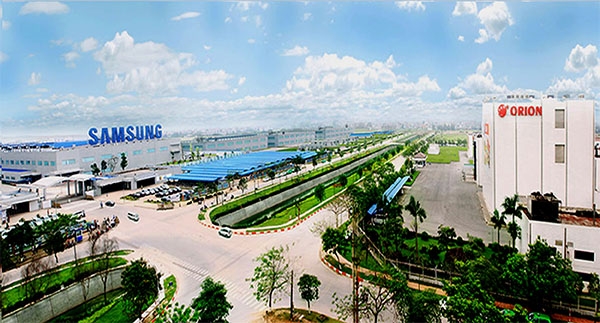 |
| FDI in Vietnam according to pundits, illustration photo |
Shim Won Hwan - President, Samsung Vietnam
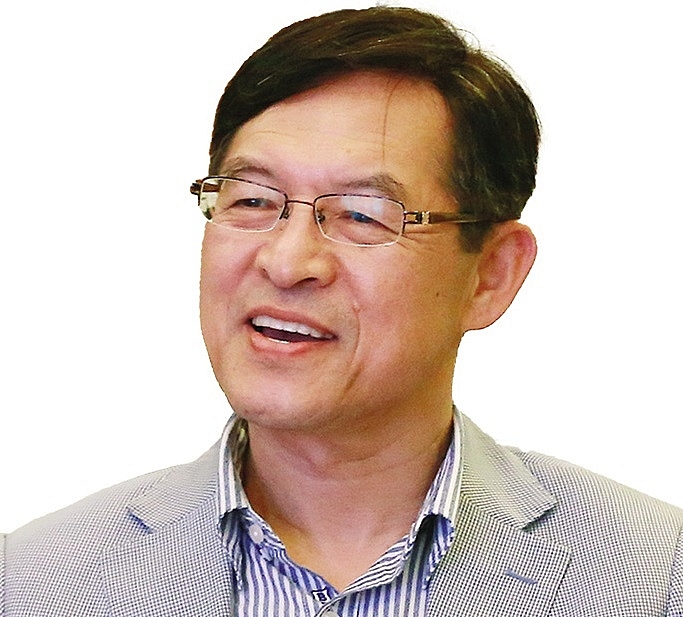 |
In 2008, Samsung began the construction of the Samsung Electronics Vietnam (SEV) factory in Bac Ninh. This was the first project of Samsung’s grand investment plan to turn Vietnam into the corporation’s global manufacturing hub.
After 10 years, going from the initial investment of $670 million for the SEV factory, Samsung is currently the top foreign investor in Vietnam with the total investment of $17.3 billion, with six factories in Bac Ninh, Thai Nguyen, and Ho Chi Minh City, creating 160,000 jobs.
By June 2018, Samsung had produced one billion hi-tech mobile products in Vietnam, including smartphones, tablets, smart watches, and feature phones.
In the future, Samsung will work towards maintaining our growth in Vietnam and contributing to the country’s total export turnover as well as developing the Vietnamese economy.
We also plan to start producing 5G network equipment in Vietnam soon, which is one of the core technologies of the Fourth Industrial Revolution.
Due to the fast-changing nature of the global market, the company’s decisions must also be quick. We always want local officials to simplify and improve administrative procedures in order to help enterprises make quick yet vital decisions in their production activities.
We also hope each province will improve their infrastructure, build more hospitals, schools, and accommodation, and better the transportation system and security to further improve people’s lives, many of whom are our employees.
Nguyen Van Bao - Vice general director, PR and Legal, Dalat Hasfarm
 |
The success of FDI in Vietnam is proven by the number of foreign-invested enterprises (FIEs), including famous conglomerates, and the changing mindset of the Vietnamese leadership, from the central to the local levels. FDI has helped improve socioeconomic development in Vietnam and in Lam Dong where Dalat Hasfarm has investments.
Besides, FDI has brought spill-over effects, promoting the growth of businesses, foreign or local, as no single company can survive on its own. We at Dalat Hasfarm need hundreds of satellite firms to provide goods or raw materials.
Dalat Hasfarm was one of the first four foreign companies in Lam Dong. We have grown from merely four hectares with 40 people and $170,000 of capital in 1992 to some 300ha, 4,000 workers, and the total investment of $90 million at present. Indeed, we have received keen support from the local government, businesses, and households.
For foreign firms and Dalat Hasfarm to grow, we need the authorities to continue the open policy for FIEs to easily invest and reinvest in Vietnam. In addition, it is also necessary to educate local farmers on legal issues and self-responsibility when dealing with FIEs.
We at Dalat Hasfarm have a very clear expansion plan by 2030.
Beatrice Maser - Swiss Ambassador to Vietnam
 |
Switzerland has supported Vietnam for almost three decades of development and congratulates the government for its achievements in FDI attraction. FDI has been a key driver of Vietnam’s development and international integration since the start of doi moi. As Swiss development assistance today focuses on promoting inclusive and sustainable economic growth, we continue to support Vietnam to further leverage FDI and promote value addition.
A rapid transition from low to skilled labour, continuous local supply chain links, and well-targeted policies on support of small- and medium-sized enterprises (SME) will help Vietnam remain a competitive FDI destination.
Switzerland, in partnership with the IFC has helped the government of Vietnam to review FDI inflows and recommend a new national FDI approach as an input for the country’s strategic documents, such as the Socioeconomic Development Strategy (2021-2030). A new project that aims at enhancing the ability of domestic suppliers to participate in global value chains has also been launched recently. The new Supplier Development Programme will support Vietnamese SMEs to improve capacity to provide high-value domestic goods and services and to connect them to multinational enterprises. As a result, the domestic sector and the local SMEs will benefit from FDI spill-over effects. They can be linked to multinational enterprises for supply opportunities, helping them access international markets and expand high-value production.
Shin Dong Hoon - Director, FDI Centre, Corporate and Investment Bank, Shinhan Bank Vietnam
 |
Many major South Korean conglomerates such as Samsung and LG have entered Vietnam and even now, many Japanese and South Korean firms are looking for new opportunities in the country to relocate production bases from their own countries or China. With the increasing influx of overseas capital, Vietnam is becoming more attractive to foreign investors. Lately, I see many financial companies, particularly from South Korea, investigating the market to set a foothold.
In the past, foreign firms were majorly manufacturing- or production-based, but now their industries and activities are diversifying, with new service-based, property, logistics, tourism investments, thanks to the favourable macro-economic environment and the growing middle class and purchasing power.
Actually, Shinhan Financial Group (SFG) has a long-term plan to create another Shinhan Financial Group in Vietnam to cover a wide range of financing areas beyond banking.
Several subsidiaries of SFG are now in Vietnam to cover securities, insurance, and digital banking.
Hans Kerstens - International business development manager, Deep C Industrial Zones
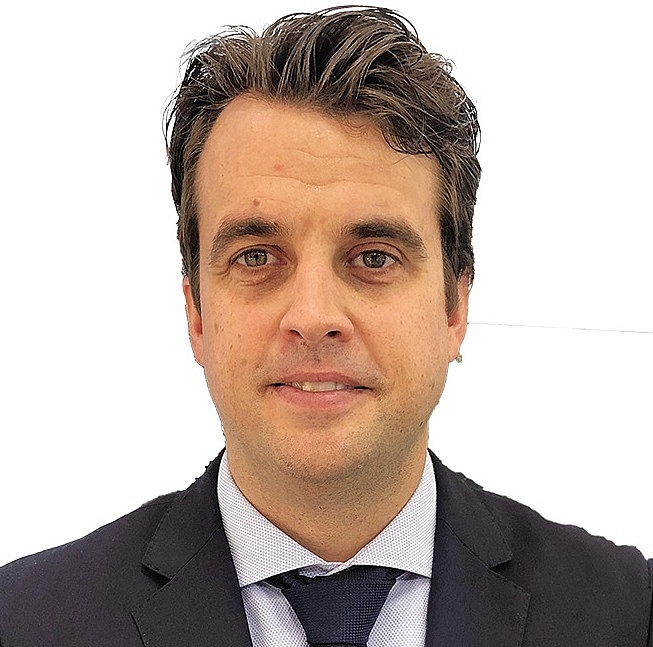 |
I think the new wave of FDI will be in high-tech products. One of the things to promote at companies is the production of renewable energy components, so the companies producing wind energy and solar panels use new, clean, and green technology. The future lies in technology, not manual labour.
We started investment 20 years ago with a small industrial park of 150 hectares, which has grown to thousands of hectares since then. Besides simply selling and leasing land, we would like to build renewable energy projects. We make massive investments into wastewater treatment to become a clean industrial park, and will transform into an eco-industrial park as the next step.
However, there is still space for improvement.
Sometimes foreign companies are struggling with the lack of English language and other skill sets.
Therefore, I think that aligning the needs of businesses with the national curricula would be a tremendous help for Vietnam to keep pace.
Tharabodee Serng-Adichaiwit - Senior vice president and general manager, Bangkok Bank (Vietnam)
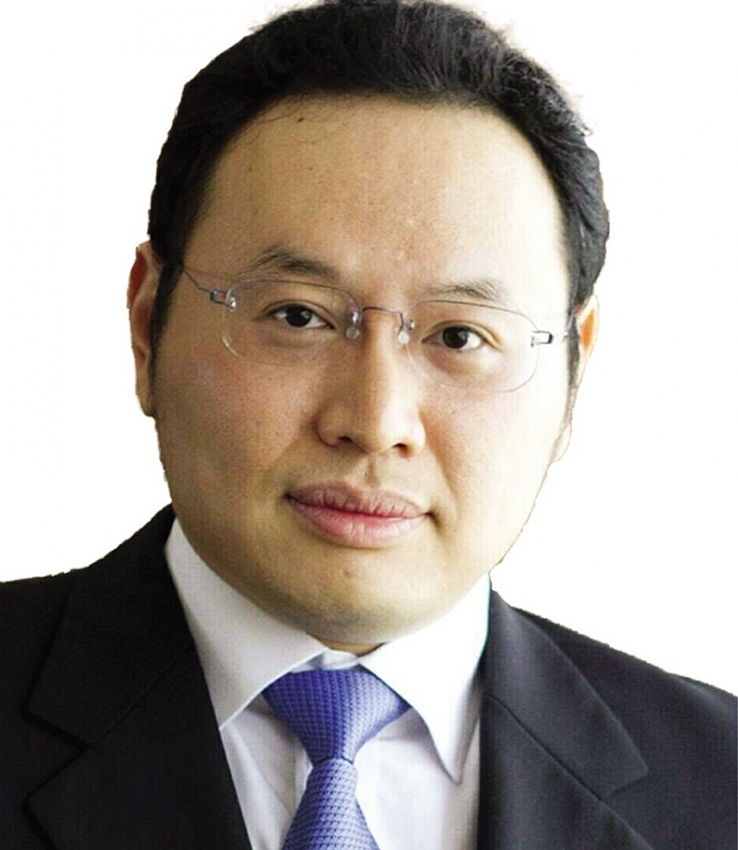 |
Vietnam has done an amazing job in soliciting FDI. The investment helped develop the country’s manufacturing platform and supply chain, as well as boost export and improve the economy. The country has done great in making every factor suitable for investment, including stable politics, attractive policies, abundant free trade agreements, and quality human resources, as well as improving infrastructure, coupled with smart monetary policies to strictly control inflation, de-dollarisation to lower interest rates and make the VND and the foreign exchange stable – this is ultimately what investors want: lower capital costs and predictable exchange rates.
In the short run, I think the trade war between the US and China will inevitably bring opportunities to Vietnam and I expect a strong influx of FDI in the coming years.
However, in the long run, Vietnam will need to fine-tune its FDI strategy to counterbalance rising wages and the workforce’s shift from manufacturing towards the service industry.
Spencer Damian White - Managing director, Delta Offshore Energy Pte., Ltd.
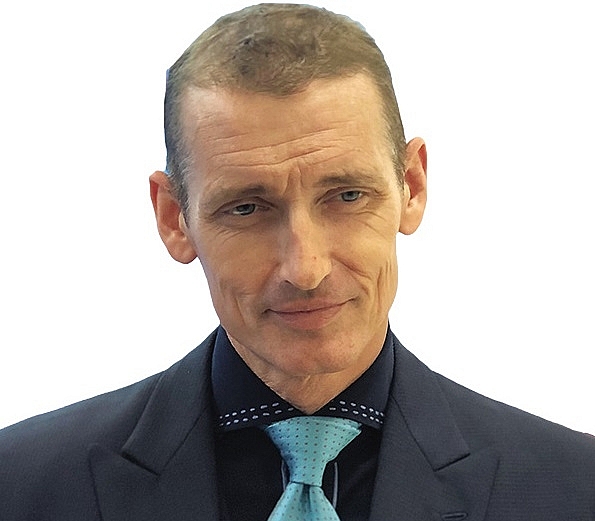 |
As a high-growth economy, Vietnam has a significant demand for power. This creates the opportunity for Delta Offshore Energy to provide world-class power solutions at highly competitive rates. We are still working with the Bac Lieu People’s Committee, the Ministry of Planning and Investment (MPI), and the Ministry of Industry and Trade (MoIT) to complete procedures for investment certificates.
We have signed a memorandum of understanding with the leaders of the committee to develop a $4 billion liquefied natural gas project. At present, it is still early to give details about the project because we have yet to start the construction.
In particular, we are very grateful for the early support from the committee and the MPI. As the project develops and becomes increasingly complex, we will also need the assistance of the MoIT and the ministries of Transport, and Finance as well as Electricity of Vietnam so that we can complete all of the approvals and permits required under Vietnamese law.
Peter Ryder - CEO of Indochina Capital
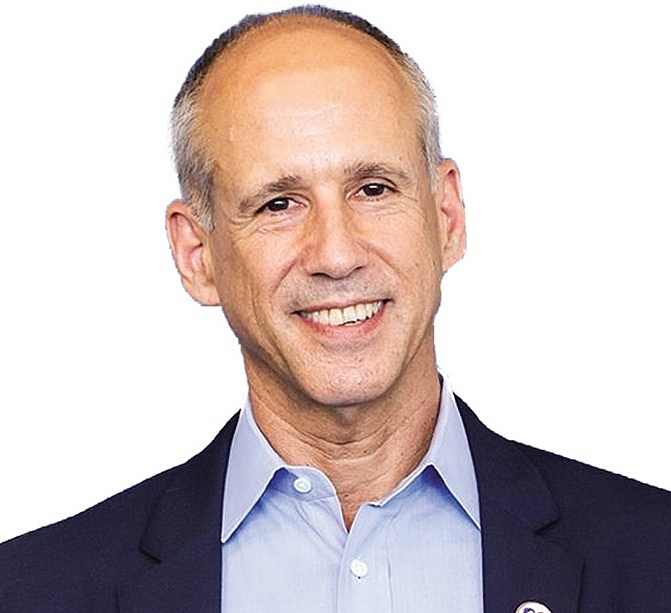 |
Indochina Capital has been a leading force in creating an international standard for real estate development in Vietnam. With The Nam Hai and Six Senses Con Dao, Indochina Capital raised the bar for resorts in Vietnam. Our other developments, including Indochina Plaza Hanoi and Hyatt Regency Danang, have made high-end properties accessible in Vietnam. We also inspired the market to adopt and embrace world standards in design, service, and operations.
After an extensive foray into the luxury and high-end segments, where we built a number of the most recognisable real estate properties in Vietnam, we now look to cater to a different segment – the new generation of local, regional, and global travellers. Vietnam’s young and dynamic population is a largely untapped market, which is why we decided to create Wink Hotels. With Wink Hotels, we hope to lead the “affordable luxury” segment in Vietnam. We intend to celebrate Vietnamese culture and to create a destination for those who want to be part of an aspirational community. Over the next decade, we will build out a robust portfolio of Wink Hotels, initially nationwide then regionally and even globally.
Without a doubt, the government should focus resources to build infrastructure, both physical and digital. Vietnam boasts fantastic human and natural resources.
Don Lam - CEO, VinaCapital
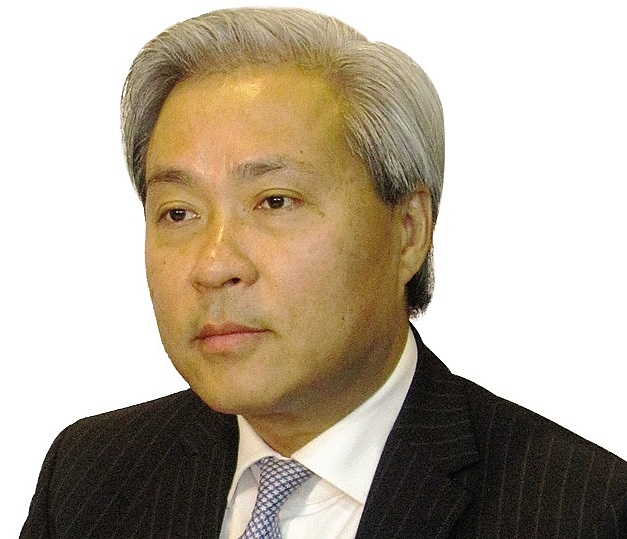 |
Vietnam is one of the most lucrative targets for foreign investors. Local firms are also doing a good job of mobilising and attracting capital.
Many local companies have been developing robustly, but they are often short of long-term investment capital. That is why the government’s advisory board on private sector development has issued some proposals to help firms mobilise long-term capital.
The lack of modern technology could also be addressed through leasing or procurement. Vietnamese firms need to elicit expert support in buying foreign technologies.
Technology is now one of the most appealing fields to foreign investors. VinaCapital has been and will be pumping money into technology projects in Vietnam. We have just founded a new investment fund (VinaCapital Ventures) to invest in FastGo and Logivan.
Our target is to help Vietnamese firms grow stronger to compete head-on with foreign firms in Vietnam.
However, limitations still exist in luring in FDI. First is the 49 per cent foreign ownership limit at some business fields. Loosening the cap will help draw more investors to Vietnam. The second and the largest limitation is the lack of powerful local targets for investment.
Vietnam, therefore, needs to equitise SOEs to attract foreign investors and support them to rise to a regional level.
Brian Hull - Country director, ABB
 |
This year marks our 25th anniversary in Vietnam. Over this time, ABB Vietnam has grown into a reliable technology partner. Besides, ABB factories in Vietnam manufacture transformers, high-voltage components, and medium-voltage power products for customers across Southeast Asia and the world. We currently employ some 900 people in Hanoi, Danang, and Ho Chi Minh City.
ABB sees many opportunities in Vietnam to offer solutions to make project implementation easier and to digitalise industries and the infrastructure sector. This is backed by our years of experience and domain expertise in helping ensure grid reliability and developing renewable power resources. Whether it is the growing power and infrastructure needs or the rapidly developing manufacturing base, with our products and offerings, we can truly contribute.
We focus on three main areas. The first one is the key utilities, electricity and water. We see a lot of growth here and we supply the latest technology to manage and ensure high reliability in the grid.
Second, we work with industrial customers, including F&B firms. Our expertise in automation, power management, and robotics allows our clients to serve customers with higher quality and speed.
The last area is infrastructure and transportation, where ABB supports the country’s sustainable urban development by supplying smart technologies and the infrastructure sector.
Kim Youn Chul - Chairman, Hanwha Techwin
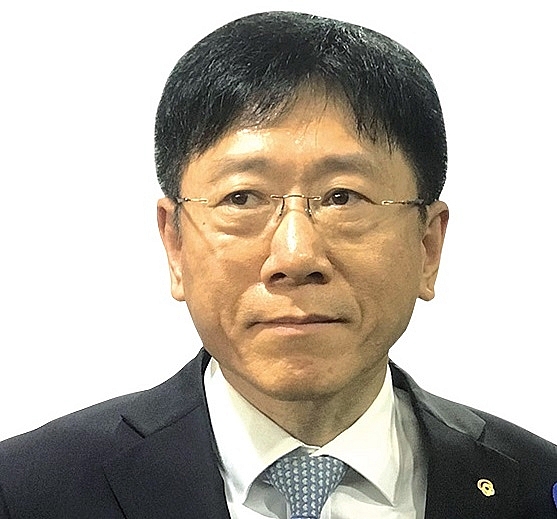 |
Our company belongs to Hanwha, the eighth largest conglomerate in South Korea. We sighted Vietnam four years ago and set foot in the country in 2016.
Among the South Korean firms doing business in Vietnam, tech colossus Samsung Group came as the pioneer. After Samsung came to Vietnam, we realised that the country’s investment climate and development potential had significantly improved, particularly human resources and labour skills.
We decided to open a security and surveillance equipment manufacturing facility in Bac Ninh and a jet engine manufacturing facility in Hoa Lac High-Tech Park of Hanoi.
Hanwha Techwin’s surveillance camera production plant in Bac Ninh commenced production in January 2018 with about 500 workers. We will expand its scale and recruit an additional 500 workers by 2020.
Our jet engine plant in Hoa Lac might employing 1,000 labourers and will be launched in January 2019.
We have been operating in Vietnam without a hitch until present. However, we have one proposal. As our company operates in the high-tech field, we expect that the Vietnamese government will support us in certifying the company as a high-tech firm. We also want local authorised agencies and local residents to use more “Made in Vietnam” products that were produced by South Korean firms to support our production expansion plan.
Luan Nguyen - General partner, JWC Blockchain Ventures
 |
The young Vietnamese generation needs support to capture the opportunities of Industry 4.0. These are once-in-a-lifetime opportunities since they not only provide a unique technology platform for disruptive technologies to flourish, but they could provide solutions with huge social impacts. Furthermore, new economic models such as the token economy will enable small economies and cities to level the playing field and compete with their larger counterparts.
As a blockchain investment fund, we want the regulatory system to become more open and simple, making it easier to set up business by simplifying procedures on business establishment, tax declarations, and clarifying blockchain regulations.
Investors should not need to submit ‘red invoices’ as they are rarely used internationally. Also, the government should support cashless and touchless payments to speed up settlements and reduce bank fees for crypto wallets and payments.
In the 4.0 era, Vietnam’s development priorities are less important than fully capitalising on the country’s real treasure, its dynamic young generation. The state should either issue policies that encourage investors to train labourers or allocate specific budgets to universities and colleges for the purpose.
A member of our delegation had put more than $500 million into a leading telecommunications firm in 2000. The investment came to fruition and the MobiFone project was transferred to the state. Vietnam should embrace and capture similar investors in Industry 4.0 and blockchain.
Nirukt Sapru - CEO, Standard Chartered Bank Vietnam
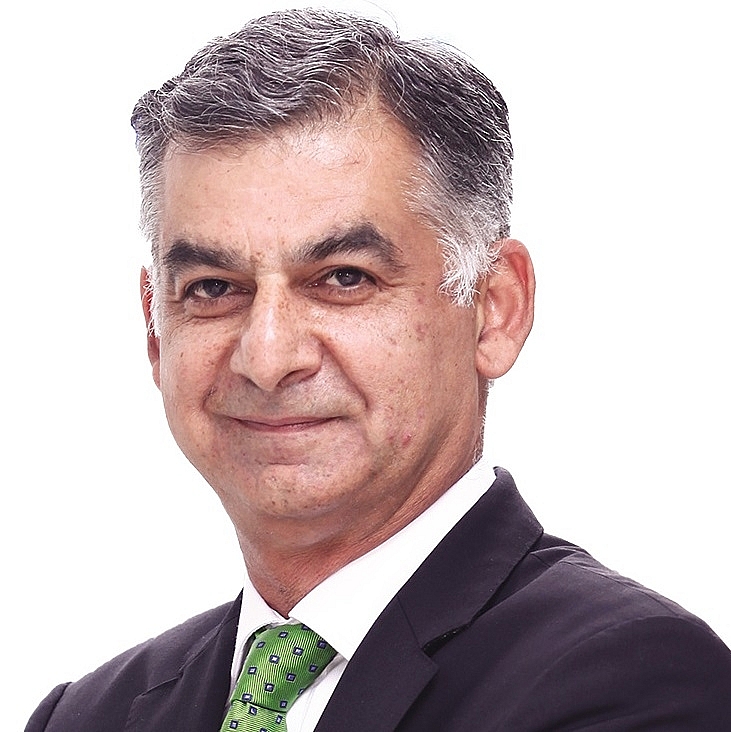 |
In 2018 Vietnam is an exciting place to be! With a young and well-educated labour force, a 90-million market, and stable political climate, the fundamentals are in place for continued economic growth and investment.
The government and the State Bank of Vietnam have done their part to encourage development with consistent efforts to attract investment, including measures to ensure macro-economic stabilisation, reforming administrative procedures, and restructuring the banking sector to create a more favourable business environment. Standard Chartered foresees that FDI inflows will stay strong in 2018 and 2019-2020, with registered capital close to $17 billion each year, and FDI inflows to the manufacturing sector, particularly electronics manufacturing, remain high.
However, Vietnam could face a number of issues that might affect the business and investment climate, including macro-economic challenges, the continued health of the banking system, and the need to further develop the legal framework. However, these are gradually addressed by the government and this work will further accelerated in the coming years. We congratulate Vietnam and the government on the achievements of the last 30 years of FDI attraction, and we look forward to the next 30 years of growth and development.
Jean-Manuel Cros - HR director, Auchan Retail Vietnam
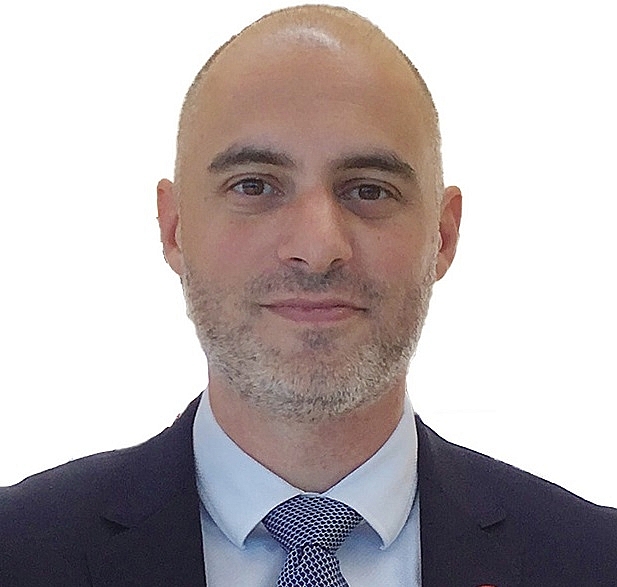 |
Auchan was the first European retailer in Vietnam. After three years, Auchan now has 21 stores in three cities and we expect to grow to 300 units within four years to become the leading retailer. To reach this target, along with the co-operation with local suppliers, we want to receive support from the Vietnamese government.
First, we import a large volume of goods from the EU, however, currently, the import tax is quite high and the procedures are very complex.
Second, as far as I know, there is no professional training course on retail in Vietnam, which needs to be addressed. If the people do not have methodical knowledge, they will not be able to exploit the full potential of the sector.
Auchan also wants to recruit skilled and knowledgeable people for our plan to expand in Vietnam.
Oh Dongkun - COO, Becamex Tokyu
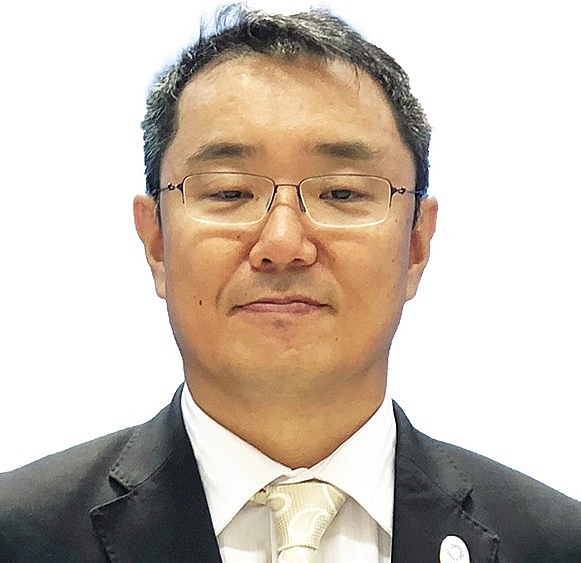 |
After six years of operations in Vietnam, Tokyu Group is satisfied with our achievements. During this time we have often received timely support from local authorities and provincial leaders. Together with local partner Becamex IDC, we have had almost no difficulties in establishing the Becamex Tokyu joint venture and deploying our urban development project in Binh Duong. In the future, we will land long-term co-operation deals with big Vietnamese firms to implement other urban development projects and accompany Binh Duong to build the first smart city in Vietnam.
However, we expect to receive greater support from the Vietnamese government and local authorised agencies as well as better supporting policies to attract prestigious investors to Vietnam.
Anderson Tan- chairman, SkillsSG Ventures
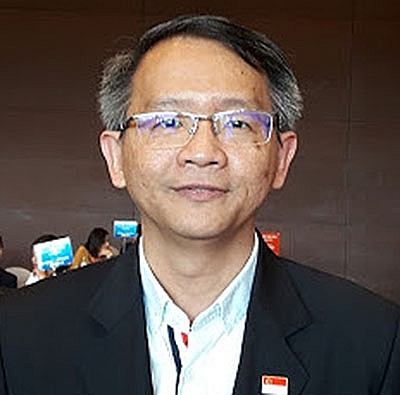 |
Our company operates in the area of skills development. We are working and investing in Thanh Hoa province to develop skill standards for the province and to work with universities and vocational colleges to train graduates for various industries, particularly hospitality and tourism, as well as introducing English programmes for specific industries.
I think the Vietnamese government has been very supportive, in terms of explaining various policies, introducing us to various stakeholders and the policies that affect our areas of business.
I think the government is also very generous with incentives, for example tax and land incentives. We, however, also face some challenges in operation. We sometimes need to communicate with government officials which require discussions to be translated and some contents are always lost during translation.
Other challenge includes some policies not being explained clearly and policy changes. Another challenge comes from leadership changes, as we often have to re-establish relationships and renegotiate the terms of our partnerships. Otherwise, I think the Vietnamese government, particularly the MPI, has been very friendly and supportive to foreign investors.
Industry 4.0 brings both challenges and big opportunities, but I think many countries, including Vietnam, will not be able to capture the benefits of Industry 4.0 because they do not have a comprehensive skill ecosystem. Industry 4.0 requires not only developing new skills, but skilling up the existing workforce.
It will be a big challenge to the Vietnamese government to quickly set up a skill development system to quickly capture the benefits of Industry 4.0 and to protect its current labour force from becoming redundant.
In my view, few key areas for development in the Industry 4.0 context are IT, financial services, manufacturing, healthcare, high-tech agriculture, and education and training.
What the stars mean:
★ Poor ★ ★ Promising ★★★ Good ★★★★ Very good ★★★★★ Exceptional
Related Contents
Latest News
More News
- Strengthening the core role of industry and trade (February 19, 2026 | 08:35)
- Future orientations for healthcare improvements (February 19, 2026 | 08:29)
- A cultural development pillar for the new period (February 19, 2026 | 08:22)
- Infrastructure orientations suitable for a new chapter (February 19, 2026 | 08:15)
- Innovation breakthroughs that can elevate the nation (February 19, 2026 | 08:08)
- AI leading to shift in banking roles (February 18, 2026 | 19:54)
- IFC to grant $150 million loan package for VPBank (February 13, 2026 | 09:00)
- SABECO celebrates diverse Tet Traditions (February 11, 2026 | 08:00)
- Canada backs Vietnam’s green transition with AGILE project (February 09, 2026 | 17:41)
- Canada trade minister to visit Vietnam and Singapore (February 09, 2026 | 17:37)

 Tag:
Tag:



















 Mobile Version
Mobile Version